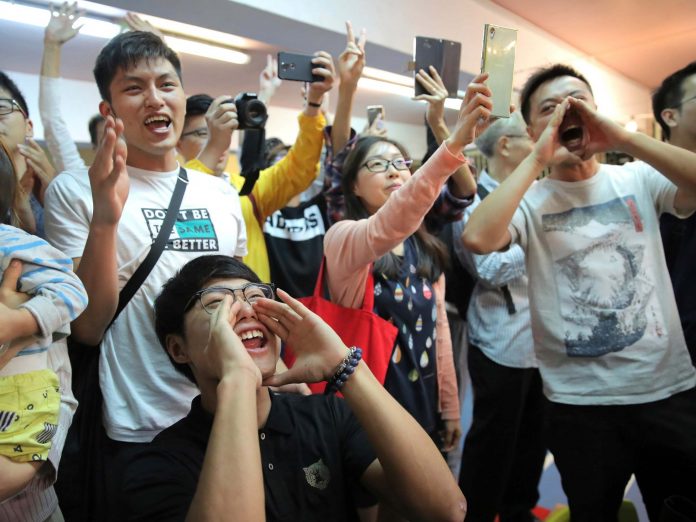Hong Kong’s opposition pro-democracy movement has made unprecedented gains in the Chinese territory’s district council elections, early results show.
According to local media counts, 17 of the 18 councils are now controlled by pro-democracy councillors.
Despite fears the vote could be disrupted or cancelled over the unrest, it went ahead peacefully.
The election was seen as a test of support for the government after months of unrest, protests and clashes.
The government and Beijing had been hoping the election would bring a show of support from the so-called “silent majority”, but that did not materialise. Instead some significant pro-Beijing candidates lost council seats.
One controversial pro-Beijing lawmaker, who lost his seat, Junius Ho, said “heaven and earth have been turned upside down”.
Hong Kong’s district councillors have little political power and mainly deal with local issues such as bus routes and rubbish collection, so the district elections don’t normally generate such interest.
But these polls were the first time people could express at the ballot box their opinion on embattled Chief Executive Carrie Lam’s handling of the crisis, which was sparked by a now withdrawn extradition law.
Also, 117 of the district councillors will also sit on the 1,200-member committee that votes for the chief executive, so a pro-democracy district win could translate eventually to a bigger share, and say, in who becomes the city’s next leader.
A record 4.1 million people had registered to vote – more than half the population – and more than 2.9m people cast votes.
That’s a turnout of more than 71%, against 47% in 2015.
The weekend was also the first in months without any clashes between protesters and police.
Over the past months, demonstrations and unrest had been gradually escalating.
Police have at times used live rounds, wounding several protesters. Activists in turn have attacked police or in one case set alight a government supporter.
It was unclear how much of the general population still supported the protesters, and authorities had been hoping the election would identify the protesters as a small group of fringe extremists.
But in many districts, young first-time candidates, many who had explicitly aligned themselves with the protesters, unseated established politicians backing the government.
The hope from activists is that the overwhelming victory of anti-establishment parties will force the government to take protesters’ demands more seriously.
-BBC
